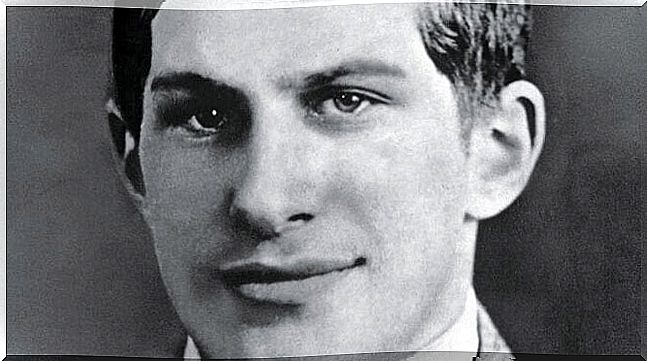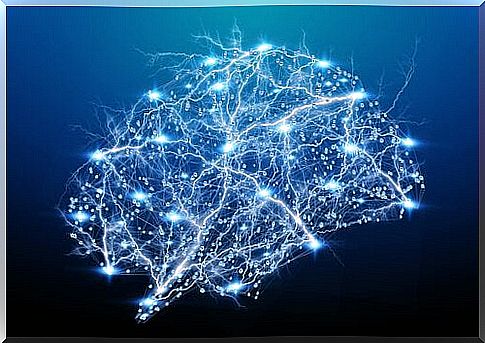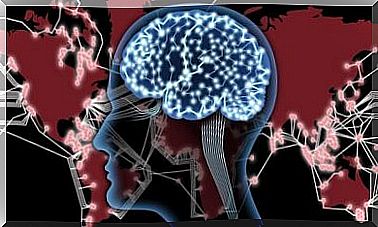High Intelligence And Genetic Inheritance: What Is The Relationship?

What determines a person’s intelligence? Many personalities and studies support the idea that our IQ is determined or heavily conditioned by the genetic code. However, while there is a relationship between intelligence and genetic inheritance, it is not always as direct and clear as it sounds. In fact, there must be many other factors for this intellectual predisposition to manifest itself.
When we speak of high capacities, we are almost obliged to refer to one name in particular: William James Sidis . This young man who died in the mid-1940s in the United States is still considered to be the man with the most amazing intellectual abilities ever documented. In fact, his IQ is estimated to be above 250 points.
The most impressive thing about Sidis was his education. The fact that he joined Harvard University at the age of nine wasn’t just because of his genetic inheritance. His mother, Sara, was a doctor, and his father, Boris, a psychiatrist and specialist in developmental psychology. So if there was one thing these two Ukrainian scientists knew, it was that developing a high IQ didn’t just depend on our 23 pairs of chromosomes.
A high intelligence is the result of a facilitating environment added to a receptive brain. The marriage of this couple of scientists guided their son’s life towards a single goal: maximizing his cognitive abilities. The result exceeded your expectations. However, this young man was more than just a child prodigy: he was clearly an unhappy person.

High intelligence and genetic inheritance: smart parents, brilliant children?
Intelligence, like human behavior, is a complex trait. Defining it, however, is not difficult, as it includes all those experiences in which a person demonstrates a clear ability to learn, reason, plan, solve problems, think abstractly, understand complex ideas, and give highly creative answers.
However, knowing exactly what produces individual differences in each of these competencies has always been a challenge. Today we can say that yes, genetic inheritance is what gives shape to each of these abilities. What’s more, the University of Glasgow conducted a study in 2016 where it was shown that genes associated with cognitive functions are mainly inherited from mothers. The X chromosome, so to speak, would largely determine our potential.
But we are talking about possibilities, because not everything is that clear. A recent study published in the journal “Genetic Reference“ demonstrated something that has been in the intuition of experts for nearly a century. Social circles shape us, provide the conditions for us to reach our full cognitive potential or not. Genetic inheritance, in turn, determines approximately 40% of the equation.

Intelligence, a dimension sensitive to a multitude of factors
Neurologists often comment that we overestimate the idea of high intelligence. When brain surgery is performed, there is no specific area to distinguish intelligence. There is no structure that specializes in making us brighter than the rest.
In fact, they are countless processes working in harmony, a hyperconnected synaptic world that results in a brain that is more agile, more sensitive, more effective than the average.
High intelligence may depend on our genes, but several other factors are also important:
- A secure attachment to the mother in which there is constant emotional exchange;
- A positive creation;
- Adequate nutrition;
- Study assistance and opportunity to have a well-resourced education.
- A supportive and stimulating social circle (a good family, prepared teachers, a suitable and safe community, etc.)

Unfavorable creation and brain plasticity
At this point, some readers are likely to ask themselves the following question: What happens if my genetic inheritance is associated with high intelligence, but I didn’t have a good childhood to develop it? What happens if my surroundings were not favorable and my academic performance was low? Does that mean I can never improve my IQ?
Every psychologist or lover of psychology has in his mind a key figure in this matter. We’re talking about Kurt Lewin. The father of modern social psychology gave us a term that laid the foundations for many later theories and studies: the theory of field or the power of context.
Essentially, what Lewin demonstrated was that human beings are the result of the interaction of all their experiences, past and especially present. We are our attitudes, what we choose to do with everything we live.
Thus, something that could be seen when studying the trajectory of twins separated at birth and raised in different contexts is that an unfavorable environment, with scarce economic resources, remarkably influences the development of intelligence.
However, our potential is not completely diminished or erased by these sterile conditions. Not if the person has, at a given moment, the opportunity to build an environment that allows him to recover the “lost territory”.

Lewin found that when a twin raised in unfavorable surroundings distanced himself from his adoptive parents, he was free to let his genotypes express themselves. Their cognitive abilities improved when they found a motivation, a goal that agreed with their interests and an environment that facilitated their goals.
The brain, after all, is not a stable physical entity. Plasticity, our curiosity and our will are capable of producing true miracles.








